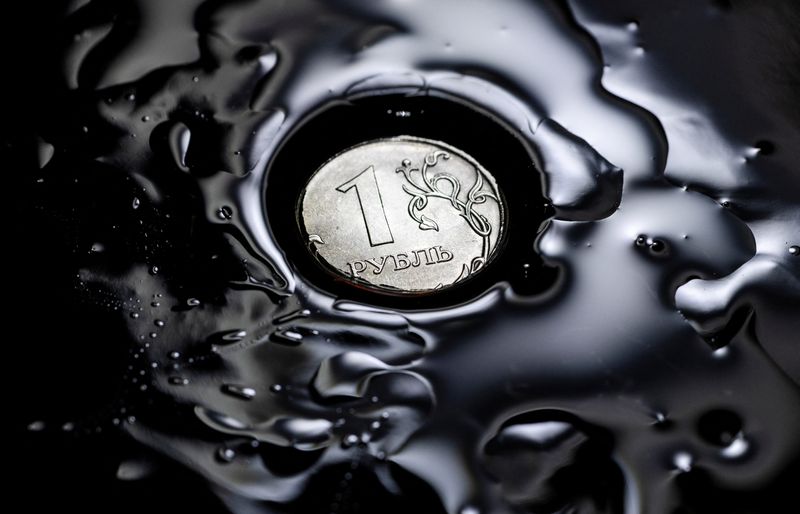(Reuters) -The Russian central bank sharply cut its key rate to 17% on Friday and said future cuts were possible, as emergency steps had contained the risk to financial stability, brought deposits back to banks and helped limit the threat of inflation, it said.
Last month, the central bank kept its key interest rate at 20% following a massive emergency hike in February and said it would start buying OFZ government bonds, warning of an imminent spike in inflation and a looming economic contraction.
Russia sent troops into Ukraine on Feb. 24 on what it calls a "special military operation" to demilitarise and "denazify" its neighbour, prompting widespread Western sanctions.
On Friday, the central bank unexpectedly cut the key rate by 300 basis points, taking the decision ahead of its next regular meeting set for April 29.
It said the move reflected a change in the balance of risks of accelerated consumer price growth, a decline in economic activity and had contained the risk to financial stability.
"Financial stability risks are still present, but have ceased to increase for the time being, including owing to the adopted capital control measures. There is a steady inflow of funds to fixed-term deposits," its statement said.
Annual inflation in Russia accelerated to 16.70% as of April 1, its highest since March 2015 and up from 15.66% a week earlier, as the volatile rouble sent prices soaring amid unprecedented Western sanctions which cut Russia off the global financial markets and limited its trade with the outside world.
External conditions for the Russian economy remained challenging and were "considerably constraining economic activity", the central bank said, but added that it "holds open the prospect of further key rate reduction at its upcoming meetings".
The central bank added that inflation would continue to rise due to the base effect, yet the latest weekly data showed a slowdown in the price growth rate, also thanks to the rouble's growth.
"The tightening of monetary conditions already in place is partly offset by the lending support programmes launched by the government and the Bank of Russia, but it will continue to limit pro-inflationary risks," the statement said.
Russian analysts welcomed the ahead-of-schedule key rate cut, which some expected to start only in June, saying it showed that the central bank was confident in the emergency steps taken since Feb. 24.

"The rate is likely to be cut by another 100-200 bps in April, yet it will require additional positive dynamics on inflation and inflationary expectations," Dmitry Polevoy, head of investment at the Moscow-based brokerage Locko-Invest, said.
After Friday's decision, Polevoy improved his year-end key rate forecast to 11-12% from an earlier expected "no higher than 15%".